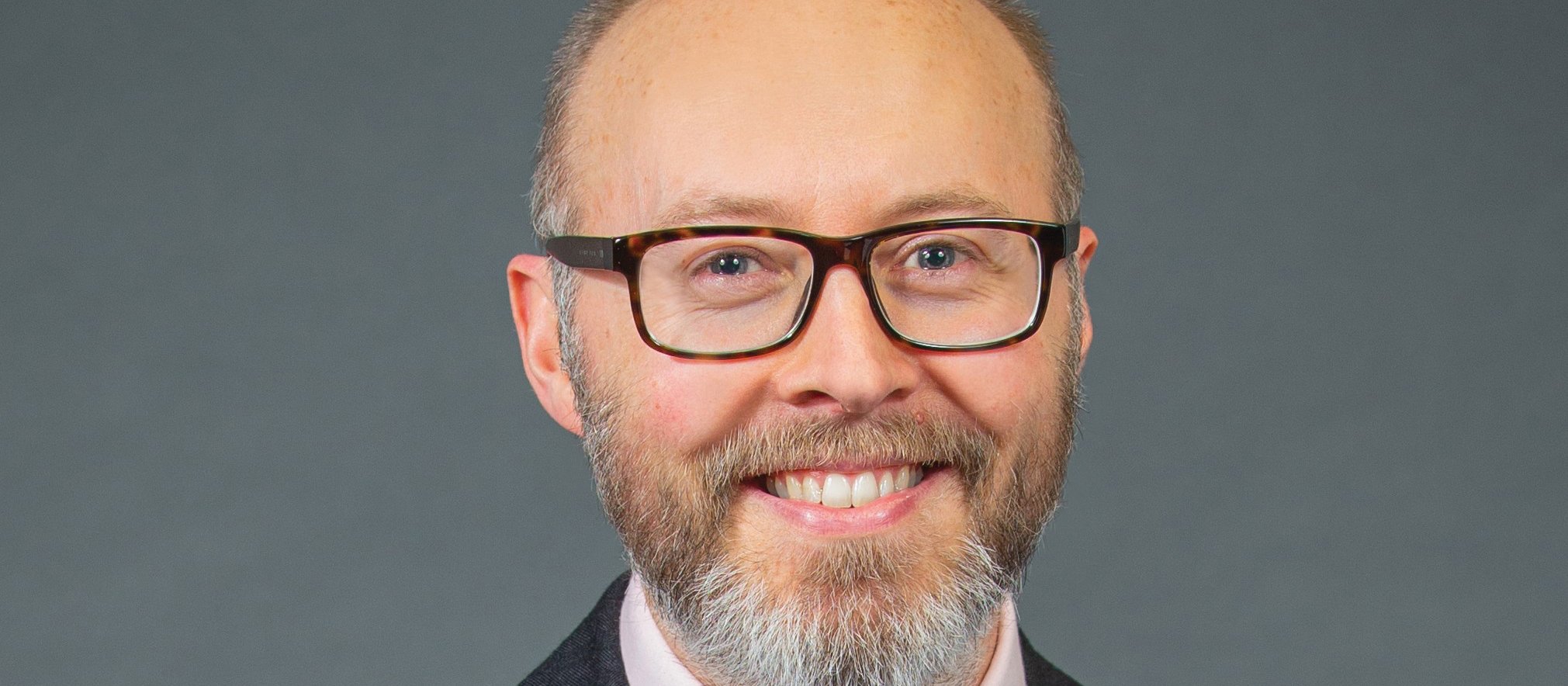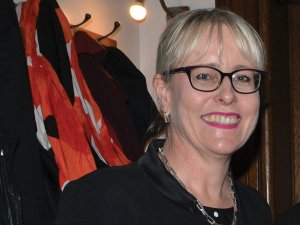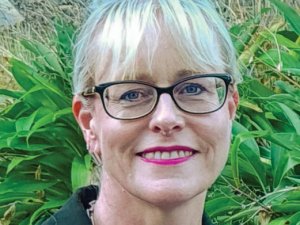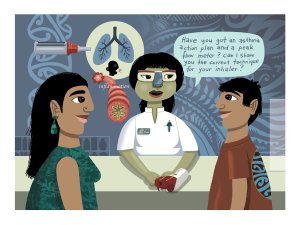Academic pharmacist Nataly Martini discusses the medical management of asthma in adults and adolescents, which has evolved to prioritise early anti-inflammatory treatment. She also explains how to improve patient outcomes by proactively identifying poor asthma control and supporting equitable access to education and treatment
Research at heart of top UK pharmacist now working in New Zealand
Research at heart of top UK pharmacist now working in New Zealand

Tim Hanlon has held top jobs in the UK’s NHS system and defence force and is now heading up a new directorate for the Ministry of Health. He talks to Paulette Crowley
Marrying an Aucklandborn woman ensured that Brit Tim Hanlon would end up living in New Zealand, but he only landed here a few years ago, after his stellar pharmacy career in the UK and Europe was well established.
There wasn’t a lot of planning involved, Dr Hanlon jokes. When he started his pharmacy degree in Manchester in 1990, he couldn’t have foreseen he would be setting up and recruiting for the Ministry of Health’s research, evaluation and innovation service, a role he took up earlier this year.
As part of the health reforms, the ministry focuses on policy and stewardship, emphasising research and evaluation, Dr Hanlon explains.
The Evidence, Research and Innovation Directorate, established in July 2022, gives “a clear nod” to the ministry’s commitment to ensuring evidence underpins policy and decisionmaking. Dr Hanlon and his staff – he’s recruiting for a 20-strong team – are overseen by the ministry’s chief science advisor Ian Town.
“We want to make evaluation – like research – a normal part of our business.”
He intends to work on the ground with anyone who has a business case across the whole agency. It’s an upfront and personal endeavour. “You can’t do this work from a back office.”
Establishing the Aotearoa New Zealand National Clinical Trials Network is another aspect of the role. The network came off the back of research finished last year that proposed a model and roadmap for an “equitable and sustainable” approach to clinical trials in our health system.
Aside from policy work, research has always underpinned Dr Hanlon’s work, which has largely focused on medicines safety. Apart from briefly locuming in community pharmacy, he split his time between hospital pharmacy, commissioning for primary and secondary care services, and academic work.
His research began in earnest while studying part time for his PhD when stationed in Germany as a civilian for the UK Ministry of Defence. The degree, focusing on medicines safety, was “quite tough” to fit in with his job and growing family, and it took him eight years of studying part time to complete.
“That’s when I fell in love with practice research. It did give me an understanding of what it is to give a big chunk of your life to research.”
He spent 10 years in Germany in the military, working in primary and secondry care commissioning and military medicines policy. He also dealt with family medicines for primary and secondary care in the barracks.
Three months after landing in the country, he met his wife, then an army medical officer. Her military job ultimately took them back to the UK, where he worked in a couple of roles as a chief pharmacist for the NHS in Dorset and Berkshire before he became the chief pharmacist and clinical director at Guy’s and St Thomas’ NHS Foundation Trust.
At the time, the trust, which had a non-sterile manufacturing unit, was probably the biggest pharmacy service in Europe.
“We made medicines that the industry had no interesting in making because they were not profitable,” Dr Hanlon says.
He went on to become a visiting professor at King’s College London and was a trustee at the Commonwealth Pharmacists Association for three years.
It was not just routine monitoring – there was a requirement to have exquisite levels of evidence around vaccine safety and effectiveness
In 2017, Dr Hanlon and his family arrived in Auckland, where he took on the toughest job of his life – being a stay-at-home parent to his six children, then aged between six months and 12 years.
“I take my hat off to those doing post-graduate studies, and I take my hat off even more to those looking after a young family,” he says.
It wasn’t long before he was sought out for pharmacy work in New Zealand, this time by Michael Pead at the Pharmacy Council of New Zealand, who asked him to consult as a regulatory advisor.
He then contracted to the Ministry of Health to manage the COVID-19 Vaccination Programme (post-event), followed by the National Immunisation Programme.
Running the vaccination programme was a “programme like no other”, Dr Hanlon says.
Working closely with Medsafe, he was responsible for ensuring vaccine safety, effectiveness and population protection.
“It was not just routine monitoring – there was a requirement to have exquisite levels of evidence around vaccine safety and effectiveness. There was political and public scrutiny. It was a real privilege.”
The programme’s legacy was the SMS-based survey, an active monitoring system known as the post-vaccine symptom check.
He hopes the National Immunisation Programme will continue to use the COVID-19 system for other vaccines.
Providing great safety information for health professionals and the New Zealand public in an age of mis- and disinformation is crucial, he says.
Research is critical at every stage of pharmacy healthcare and shouldn’t be confined to the halls of academia and hospitals. It should be practised at every level, he says.
He points out that everyone has a sphere of influence that can affect leadership, and the same is true for research.
“If you ask most clinicians, they will point to the hospital and say research happens there. I agree, and I don’t agree. Clinical trials need critical mass and contract research organisations that can service requirements and protocols.
“The hospital is the hub of that, but pharmacists can be involved outside of hospitals – I think academically it’s possible. It’s interesting to explore and not beyond the realms of possibility.”
He stresses people shouldn’t confine research possibilities to discovering new drugs.
“We need very solid research evidence to underpin our professional decision-making. It’s completely logical – you wouldn’t find a health professional that didn’t espouse that view. But I think the move to becoming personally involved in generating that evidence is something that many people fear that’s beyond them.”
Dr Hanlon would like to do what he can to encourage healthcare professionals at all ages and stages of their careers to consider research and, as many do already, think critically about the evidence they’re presented with.








